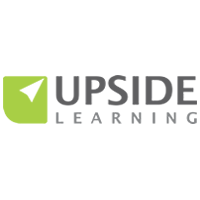Leveraging Performance Focus For Deeper Learning
In the Serious eLearning Manifesto, we (the other three authors and I) stipulated that the eLearning industry needs a focus on performance. [1] What does that mean, and what does it imply for deeper learning design? Here’s what a performance focus means, in practice.
To start, I’ll suggest that our goals should not be learning! That may seem counter-intuitive for a deeper learning perspective, but (by and large) what organizations need is not knowing new things, but the ability to do new things. We should be looking at what the gaps in our abilities to perform are and what the proper behavior should be, and then implementing initiatives to address these gaps. That might be things other than developing skills, but when skills is the need, that’s our role. To be clear, however, it’s a focus on doing, not knowing.
Robert Mager gave us good prescriptions for what performance objectives look like. He had three parts:
- Performance: the needed ability
- Context: in which the performance is expected
- Criteria: the level of performance we’ll accept as capable
Good performance isn’t about “know,” “aware,” or “understand.” Verbs for performance should be things like “diagnose,” “decide,” or “determine.” They’re action verbs about doing things.
Conscious Capability And Applied Expertise
There’s a barrier here. Research from the University of Southern California’s Cognitive Technology Group suggests that 70% of what experts do isn’t consciously available to them; experts literally can’t tell you what they do! (They can tell you what they know, however.) Expertise is about taking explicit knowledge and “compiling” it away so it becomes automated. The goal is to save our precious conscious capability for parsing the current context and applying our expertise to make the right decision. That requires having our expertise automated, to leave room for details. For instance, if you learned to drive, you likely found coordinating the accelerator and brake pedal to be problematic. As you gained expertise, you soon had those aspects mastered and could start thinking about starting and stopping, not the details of the pedals.
What this means, consequently, is that we have to work with our Subject Matter Experts (SMEs) differently. We can’t just take what they tell us and put that into courses. If we do, we end up with the knowledge-laden, and ineffective, courses we’re all familiar with. Instead, we need to find ways to elicit the necessary skills from our experts, not just the associated knowledge. Otherwise, we end up with the expert telling us what they know about it, rather than what they do; for instance, talking about principles of negotiation instead of how they put them into action. Depending on circumstances, this can include leading a discussion with a group of experts, focusing on “decisions” in our conversations with them, using a pre-questionnaire before having a dialog, and/or parsing the material and making an initial best proposal to be critiqued. Triangulating with supervisors of performers as well as experts is also beneficial. Also, not all SMEs can articulate the necessary information, and it may take working through several to elicit the needed information.
What is that necessary information? It’s more than just knowledge. Knowledge is a component, of course. I think of Van Merriënboer’s Four-Component Instructional Design in that regard, where he distinguishes between the knowledge you need and the complex problems you apply it to. [2] I suggest that we need several specific components: decisions, models, consequences, misconceptions (and their consequences), stories, and what I term as “interest.” The decisions are the focus of the performance, but there’s additional information needed to create a deeper learning experience.
Building The Right Models
It turns out that our brains build models on an ongoing basis, and they’re hard to extinguish if built wrong. Finding, and providing, good models (causal conceptual relationships that explain and predict outcomes), is a necessary guide to performance. The consequences of the choices, right or wrong, are important for building examples and practice, as are stories of great successes and/or failures. We also need the misconceptions people typically make, as alternatives to the right choices to use in designing practice, as well as their consequences. We’d rather learners get them wrong in practice, and address them, before it matters. Finally, experts have spent the requisite time to become experts; why? Finding out what made the topic intrinsically interesting to our expert is an opportunity to build that aspect into the learning experience.
Deeper learning starts from the premise of designing to meet a real need and finding the necessary information to support that need. It’s really about performance, and we shouldn’t start doing deeper learning until we have the right focus, a performance focus. Getting that is part of getting our deeper learning design process off to the right start.
References:
[1] Serious eLearning Manifesto
[2] Four-Component Instructional Design

Upside Learning
Upside Learning is a leading provider of digital learning solutions. With over 200 global clients across sectors, we help L&D leaders deliver learning experiences that improve retention and transfer to achieve desired outcomes.
Originally published at blog.upsidelearning.com.


















